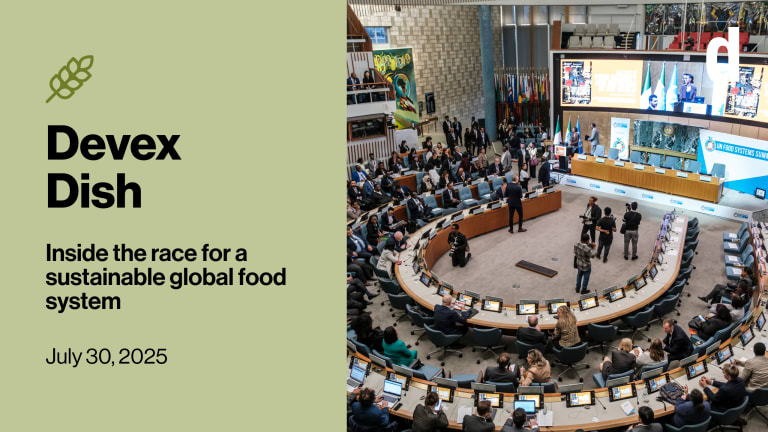WASHINGTON — Malcolm Gladwell, New Yorker writer, author of multiple best selling books, and host of the Revisionist History podcast, stood out on the Devex World agenda.
Some wondered what brought him to a conference that focused on the future of global development. But Gladwell has talked about finding “an endless source of fascination” in “attempts to apply psychological principles to complex new environments,” so his participation should come as little surprise.
At Devex World, development leaders begin to embrace what they don't know
Data and technology have opened unprecedented possibilities for development organizations to understand and connect with the people they serve. At Devex World, organizations at the cutting edge of a shift from "beneficiaries" to "consumers" see promise in a future where they — finally — don't have all the answers.
Gladwell is a trustee of the Surgo Foundation, an organization that brings private sector approaches to international development, using non-traditional efforts and integrated interventions. At Devex World, he moderated a conversation with Sema Sgaier, co-founder and executive director of the organization.
Ahead of his onstage appearance, he shared what drew him to global development and the Surgo Foundation in particular.
Gladwell said of the Surgo Foundation approach: “It’s a shift from focusing on what people do and then towards why, and why is a whole lot more complicated than what.”
He also gave an example of market segmentation, the idea that there may be a wide variety of motivations within — what might seem like — a monolithic customer group, in consumer marketing.
“It took an awful long time for consumer marketing on the for-profit side to appreciate the level of variation in individual motivation, and I think what Surgo is trying to do, is to bring that same kind of finely grained sophistication about variation in motivations to bear on some of the most impoverished areas of the world,” he said.
Watch the video to understand more about the Surgo Foundation, and why the global development community might benefit from thinking about a mother in a village in rural India with the same kind of sophistication as an upper-middle class Chevy buyer in the suburbs of New York.








